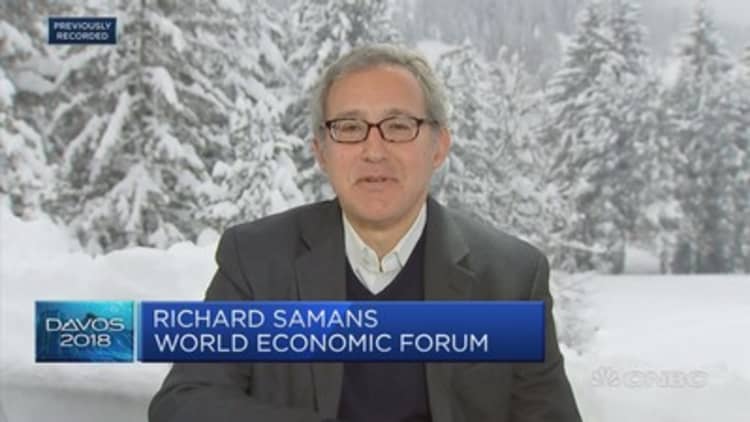
The World Economic Forum (WEF) warned Monday that global leaders are too reliant on gross domestic product (GDP) as a measure to track success.
This results in world leaders failing to account for how inclusive, or not, their economies are, the WEF said. The study looked at living standards, environmental sustainability and protection of future generations from further indebtedness as a way to determine if the economies were including every individual equally in their society.
The Forum's 2018 Inclusive Development Index was released Monday, on the eve of the WEF conference in Davos, Switzerland. It showed that while advanced economies grew GDP by 5.3 percent, on average, between 2012 and 2016, inclusion grew only by 0.01 percent.
"Under-emphasis of these (structural) policies relative to macroeconomic, trade and financial stability policies is a key reason for many governments' failure in recent decades to mobilize a more effective response to widening inequality and stagnating median income as technological change and globalization have gathered force," the report said.
The 2018 index assessed 103 economies by measuring three individual pillars — growth and development, inclusion, and inter-generational equity.
Norway was recognized as the world's most inclusive advanced economy, while Lithuania was the most inclusive among emerging economies.
"As many countries have experienced and the Inclusive Development Index data illustrates, growth is a necessary but not sufficient condition for robustly rising median living standards," the report said.
"Accordingly, policymakers and citizens alike would benefit from having an alternative, or at least complementary, bottom-line metric that measures the level and rate of improvement in shared socioeconomic progress."






